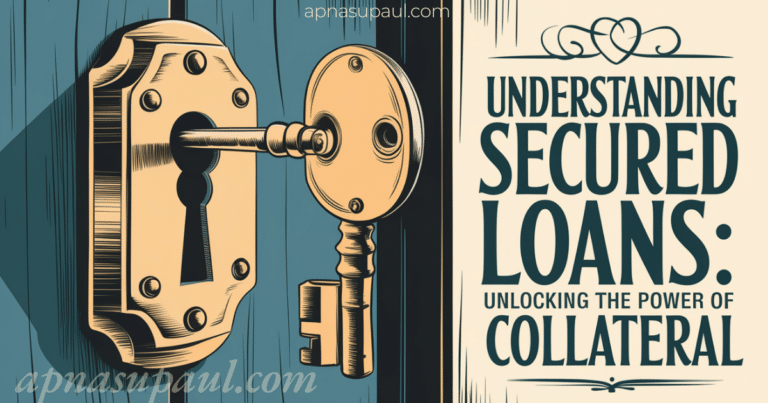Secured loans are a financial lifeline for individuals and businesses seeking significant funds at lower interest rates. By leveraging collateral—an asset pledged as security against the loan—borrowers can access higher loan amounts and better terms. From purchasing a home to funding a business expansion, secured loans provide opportunities that are often unavailable with unsecured options.
This guide explores the mechanics, benefits, and risks of secured loans, helping you unlock their potential to achieve your financial goals.
What Are Secured Loans?
A secured loan is a type of borrowing backed by collateral, such as property, vehicles, or investments. The collateral acts as a safety net for lenders, reducing their risk in case the borrower defaults. Because of this added security, secured loans often have:
- Lower Interest Rates: Lenders are more willing to offer competitive rates.
- Higher Borrowing Limits: Collateral allows for larger loan amounts.
- Flexible Terms: Borrowers may access longer repayment periods.
Common examples of secured loans include mortgages, auto loans, and home equity loans.
How Do Secured Loans Work?

Loan Application and Approval
The borrower submits an application specifying the loan amount and collateral. The lender assesses the collateral’s value and the borrower’s creditworthiness.
Collateral Agreement
Once approved, the borrower pledges the asset as collateral. If the borrower defaults, the lender has the legal right to seize the asset to recover the loan balance.
Repayment Terms
Repayment terms vary based on the loan type and lender. Borrowers typically make monthly payments until the loan is fully repaid.
Advantages of Secured Loans
Access to Larger Loan Amounts
Collateral reduces the lender’s risk, enabling borrowers to secure higher loan amounts.
Lower Interest Rates
Secured loans generally have lower interest rates compared to unsecured options, saving borrowers money over time.
Credit Flexibility
Even borrowers with less-than-perfect credit scores may qualify for secured loans if they have valuable collateral.
Longer Repayment Terms
Many secured loans offer extended repayment periods, making monthly payments more manageable.
Common Types of Secured Loans

Mortgage Loans
Homebuyers use the property itself as collateral. If payments are not made, the lender can foreclose on the home.
Auto Loans
The purchased vehicle serves as collateral. Failure to repay may result in repossession.
Home Equity Loans and Lines of Credit (HELOCs)
Borrowers tap into their home equity, using the property as security for funds.
Business Loans
Companies can secure loans by pledging assets like inventory, equipment, or accounts receivable.
Risks of Secured Loans
Risk of Asset Loss
If the borrower defaults, the lender can seize the collateral, leading to potential financial and emotional loss.
Debt Obligations
Secured loans often come with significant debt obligations, requiring discipline in repayment to avoid financial strain.
Overborrowing
The availability of larger amounts may tempt borrowers to take on more debt than they can comfortably repay.
Tips for Securing a Loan Responsibly

Evaluate the Risks
Understand what you could lose if you default on the loan.
Borrow Only What You Need
Avoid overextending yourself by taking out more than necessary.
Compare Lenders
Shop around to find the best terms and rates for your secured loan.
Maintain Good Credit
A higher credit score may help you secure better terms, even for a secured loan.
Also Read : Global Opportunities: Education Loans For Studying Abroad

